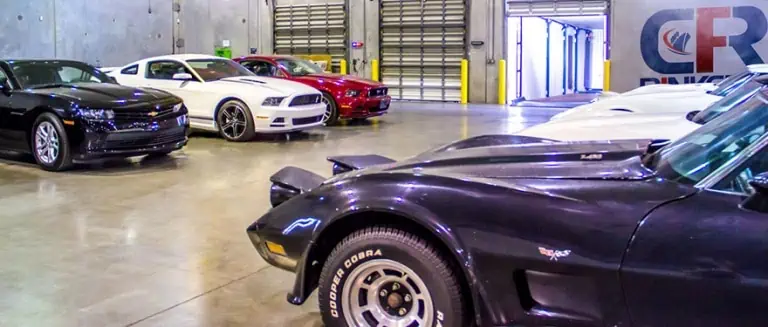A 2016 announcement from the Federal Motor Carrier Safety Administration (FMCSA) warned the public that there had been a significant rise in complaints about car transporters and car transport brokers. The FMCSA alert noted that deceptive business practices and online fraud were rampant in the industry. This issue remains critical today, particularly with international car shipping since more money is at stake (making it a juicier target for criminals).
Since so many automotive carriers are not operating transparently and might even steal your payment or your car, it is critical to perform due diligence when selecting your transporter. By understanding the typical anatomy of a car shipping scam, you will approach the search process with the right degree of skepticism. By following a short series of tips, you can both avoid swindlers and find the shipper that best meets your needs.
The anatomy of a car shipping scam
Auto transport scams are often successful because they can create a false front on the Internet and can exploit the desire of consumers to find affordable prices on what is typically a costly service. According to a report from the Better Business Bureau (BBB), the most prevalent scam occurs when a consumer:
- looks up options for auto transport through a search engine;
- sees what seems to be a compelling option and clicks the applicable link;
- arrives at the website, which appears to be that of a real and legitimate transporter;
- uses the system on the site to request a quote;
- gets a low price (lower than any others they may have received), along with the process to pay;
- submits their payment; and
- waits for a truck that will never arrive.
This common experience does not have to happen to you and has nothing to do with credible car shipping services. With the right information, you can choose a carrier with confidence.
Tips to select a car shipping carrier
As indicated by the BBB, the first step in choosing a strong auto transporter is avoiding scams. Beyond assessing credibility and knowing that you can trust an auto shipper, you also want to be able to understand what is offered and the quality of service you can expect. Here is advice to move forward:
Tip #1 – Check the website of the carrier thoroughly.
Look for typos, misspellings, and bad grammar. Widespread language mistakes are common with scammers, who typically move quickly in the creation of bogus websites. You may be able to find the shipper’s Motor Carrier Number (MC Number) from the FMCSA on a legitimate site. If you can’t find this number, that does not mean the company is fraudulent; simply ask the car shipper for this number on the phone (see Tip #5 below). Be sure to check the number on the FMCSA’s Safety and Fitness Electronic Records (SAFER) System, to verify that it is real.
Tip #2 – Do your research.
Finding a great shipper is not about simply going to a website, looking it over, and grabbing a quote. After you search car shippers and find a few options, perform separate searches on each of the companies you like. Search the shipper’s name by itself, as well as with the addition of the word “reviews” – the first to reveal any bad (or good) publicity, and the second to leverage the experience of those who have gone before you. You also may want to type in the carrier’s name along with “Better Business Bureau,” to bring up their page with the consumer organization. The BBB grades companies on a typical A to F scale – so that will give you a way to see how they measure up against other firms that goes beyond individual consumer reviews.
Tip #3 – Refuse wire transfers.
Whether you need domestic or international car shipping, do not work with a shipper that wants you to submit your payment through Western Union or another wire transfer service. “Any company that asks for a wire transfer is likely planning to take your money and run,” noted the Better Business Bureau.
Tip #4 – Go beyond price.
As indicated above, an unusually low price may be a sign of a scam. However, it can also be the mark of a shady broker. While a shipper actually moves the car, a shipping broker simply performs the transaction and connects you to shippers. Brokers that are less than forthright will quote you a price before they have confirmed it with a carrier. In these cases, the quote is less an actual quote than bait to get you on the hook so they can then try to get a transporter to accept that amount. If the broker is unsuccessful, your car will not get picked up.
Tip #5 – Perform verification.
Contact each of the organizations that you are using. See if you can get them on the phone. Whether by phone or email, ask for the MC Number, assuming you did not locate it on their site.
You can go to the FMCSA to check that they have full licensing and bonding information for the domestic or international auto carrier. You can also learn more about safety issues and complaints related to the transporter. You can look up companies by name, MC Number, or USDOT number through the agency’s SAFER portal. If you are unsure about a certain car shipper, you can also contact the FMCSA for assistance.
Tip #6 – Ask additional questions.
You also want to ask additional questions so that you understand the quotes you are getting:
Do you provide insurance? Find out from the shipper if motor vehicles are insured for their complete value during transport. If not, you need to contact your personal insurance and find out if you are covered or need additional protection.
What shipping methods do you offer? Shippers may send your car open, covered, or enclosed. Find out the services that are offered so you understand how you can best protect your car and meet your budget.
How do you calculate fees and rates? The number of miles from origin to destination is a primary determining factor in cost. However, you may be able to lower your rate based on volume – although that will typically take longer.
Will extra fees be added based on car type? You may find that you have to pay more than the quoted rate if you want to ship a full-size pickup, SUV, or especially costly car.
What is the delay policy? Find out if the company standardly refunds a portion of the shipping cost when a car does not arrive on the scheduled date.
A car shipping carrier you can trust
Since fraudsters often prey on consumers seeking to ship their cars, the first step in finding a carrier is to verify their legitimacy. As you research a domestic or international car shipper through various sources, you will both find out if they are legitimate and if you can be confident that your car will get their safely and on time.



